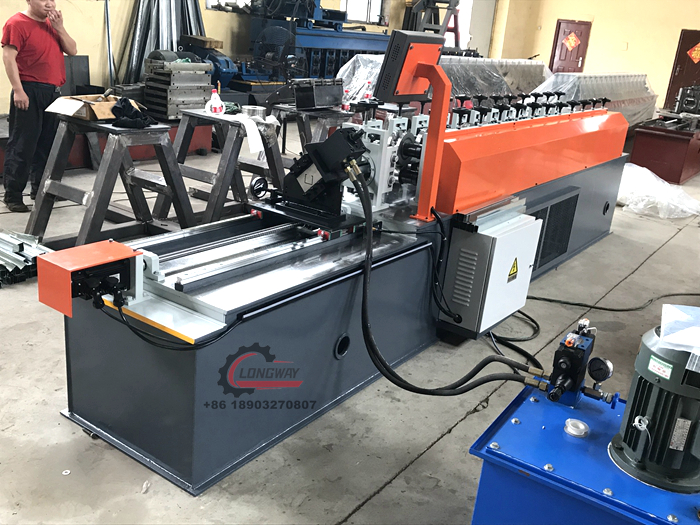Types of Roll Forming Machines and Their Applications in Manufacturing
Understanding Roll Forming Machines Types and Applications
Roll forming is a highly efficient manufacturing process that shapes metal into desired profiles by passing it through a series of rollers. It is widely used in various industries to produce components such as roofing panels, door frames, and structural beams. One of the key elements influencing the effectiveness of the roll forming process is the type of roll forming machine used. This article will explore the different types of roll forming machines, their unique features, and their applications in various sectors.
Types of Roll Forming Machines
1. Standard Roll Forming Machines These machines are designed for producing simple shapes with continuous profiles. They are equipped with a series of rollers that progressively bend the metal sheet into the desired shape. Standard roll forming machines are generally used for high-volume production and can handle various materials, including steel, aluminum, and copper.
2. High-Frequency Welded Roll Forming Machines These machines are specifically engineered to produce hollow sections by welding edges of metal sheets. The process utilizes high-frequency electrical currents to heat and fuse the edges together. High-frequency welded roll forming machines are commonly used in the production of tubes and pipes, making them essential in industries such as construction and automotive.
3. Cold Roll Forming Machines Cold roll forming machines process materials without the need for preheating, utilizing ambient temperature to shape metals. This type of machine is particularly advantageous for producing lightweight components with high precision. Cold roll forming is frequently used in the manufacture of brackets, frames, and small structural elements, making it a popular choice for the automotive and electrical industries.
4. Heavy-Duty Roll Forming Machines These machines are built to handle thicker and larger raw materials, catering to industries that require robust components. Heavy-duty roll forming machines are capable of producing high-strength structural shapes used in construction and heavy machinery. The durability and strength of components manufactured with these machines are critical in applications where safety and structural integrity are paramount.
5. Custom Roll Forming Machines For businesses requiring unique profile shapes that are not readily available through standard machines, custom roll forming machines provide a solution. Manufacturers can design specialized tooling and settings tailored to their specific needs. Custom roll forming is ideal for niche markets or specialized applications, including aerospace components and specific architectural features.
roll forming machine type

Applications of Roll Forming Machines
The versatility of roll forming machines allows them to serve numerous applications across various industries. Some of the most common sectors that employ roll forming technology include
- Construction Roll forming machines produce diverse construction materials such as metal roofing panels, wall studs, and metal framing systems, providing structural support and aesthetic finishes. - Automotive The automotive industry utilizes roll forming machines to manufacture components like chassis, brackets, and reinforcements, ensuring lightweight and durable parts that contribute to overall vehicle safety.
- Energy In the energy sector, roll forming produces components for renewable energy solutions such as solar panel frames and wind turbine parts, underscoring its role in sustainable development.
- Electrical Electrical enclosures, conduits, and various cabling components are also manufactured using roll forming, where precision and compliance with safety standards are essential.
Conclusion
In conclusion, roll forming machines are indispensable in modern manufacturing, offering a wide array of options tailored for different production needs. From standard models that handle high-volume runs to specialized machines for unique profiles, the choices available help manufacturers optimize their production processes. Understanding the various types of roll forming machines and their applications can significantly enhance decision-making for businesses seeking efficient and cost-effective manufacturing solutions. As industries continue to evolve, roll forming technology will undoubtedly adapt, fostering innovation and efficiency in metal fabrication.
-
Roof Panel Machines: Buying Guide, Types, and PricingNewsJul.04, 2025
-
Purlin Machines: Types, Features, and Pricing GuideNewsJul.04, 2025
-
Metal Embossing Machines: Types, Applications, and Buying GuideNewsJul.04, 2025
-
Gutter Machines: Features, Types, and Cost BreakdownNewsJul.04, 2025
-
Cut to Length Line: Overview, Equipment, and Buying GuideNewsJul.04, 2025
-
Auto Stacker: Features, Applications, and Cost BreakdownNewsJul.04, 2025
-
Top Drywall Profile Machine Models for SaleNewsJun.05, 2025








